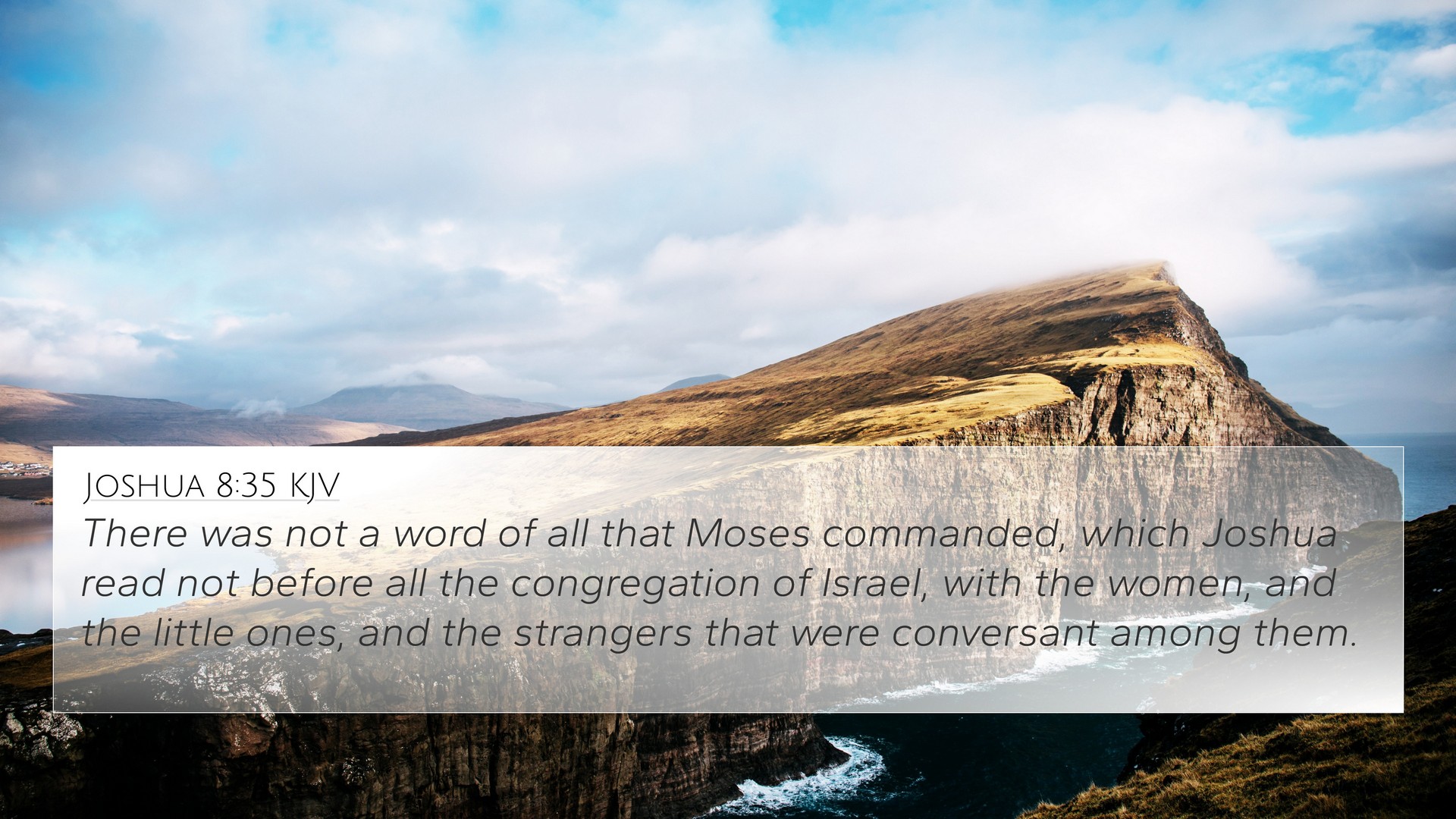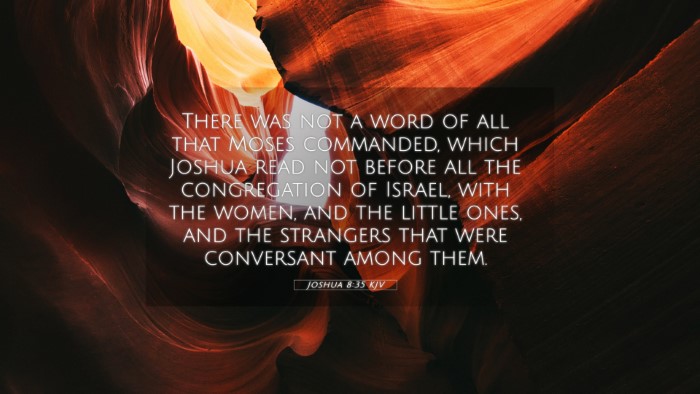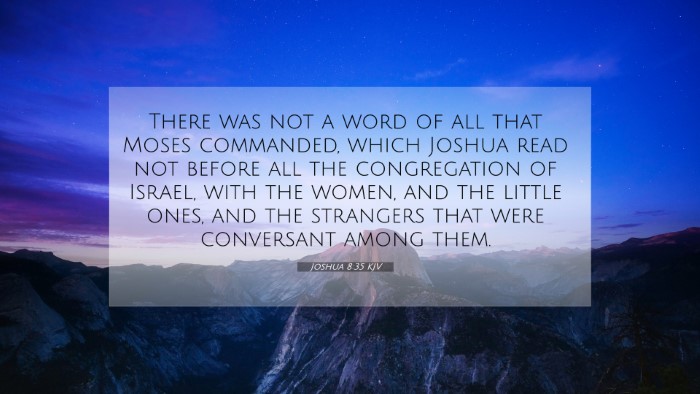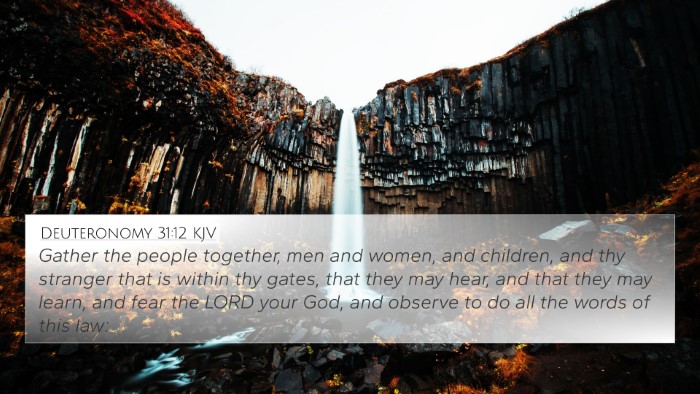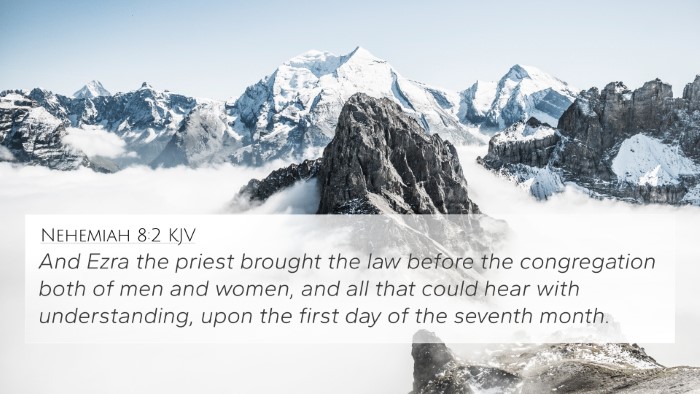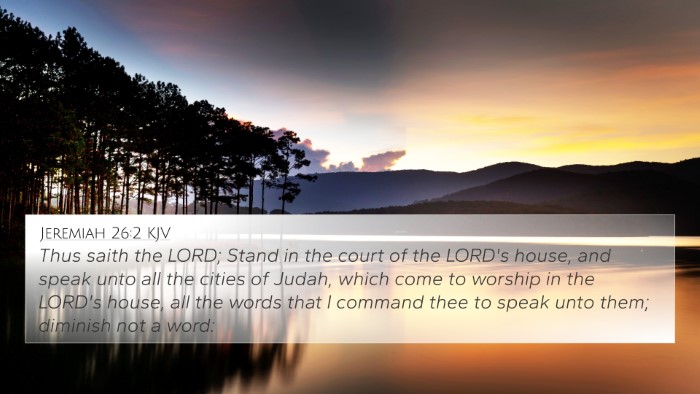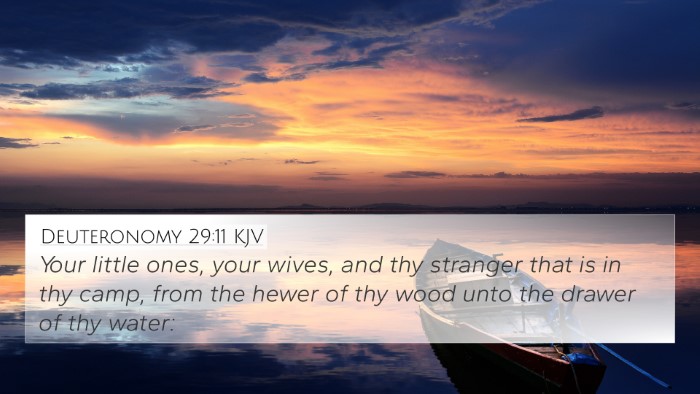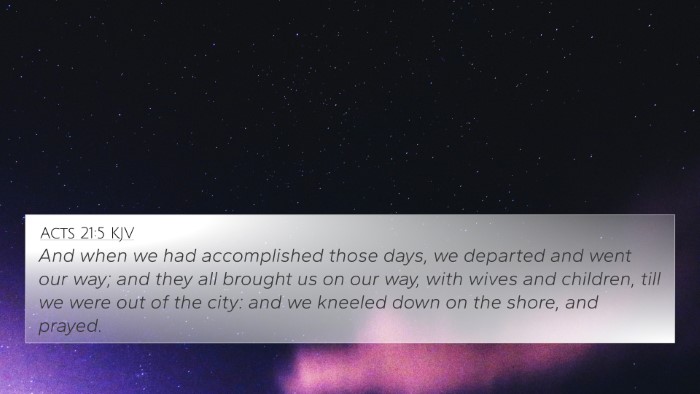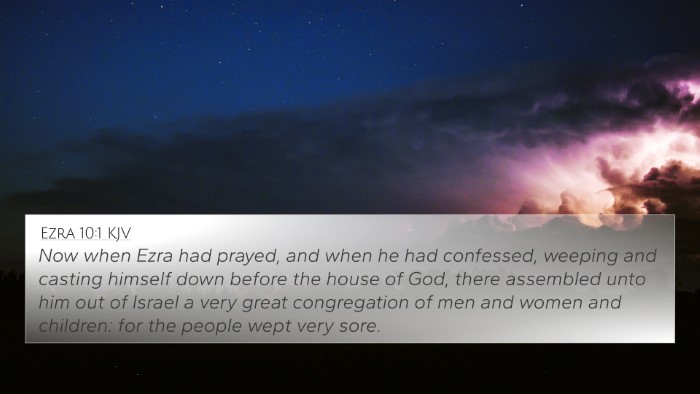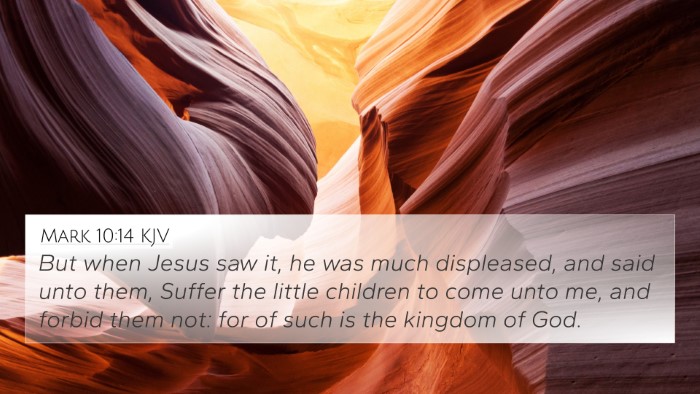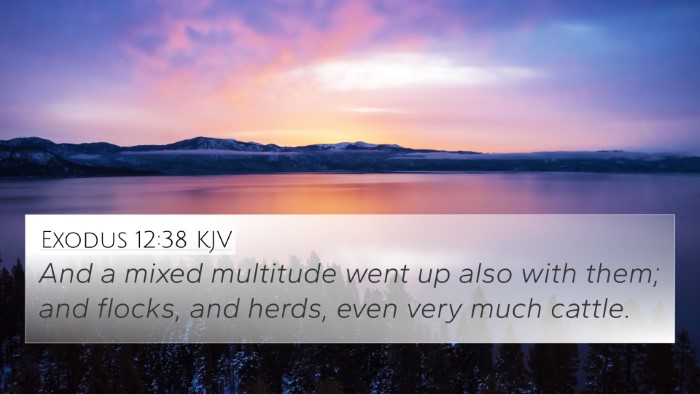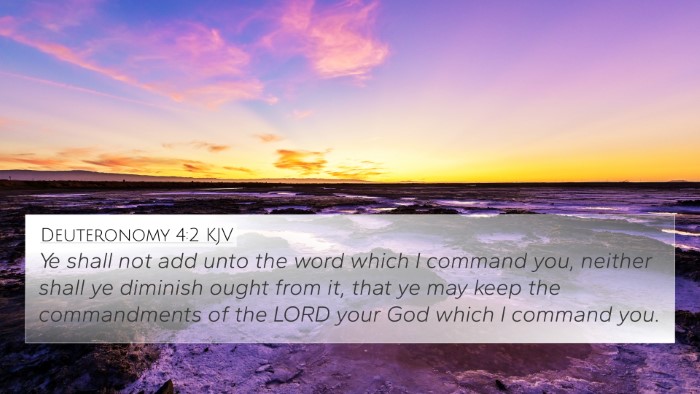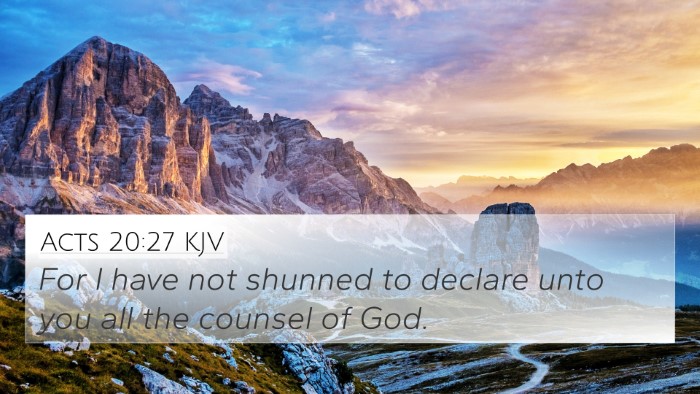Understanding Joshua 8:35
Joshua 8:35 (KJV): "There was not a word of all that Moses commanded, which Joshua read not before all the congregation of Israel, with the women, and the little ones, and the strangers that were conversant among them."
Verse Meaning Overview
The verse serves as a reminder of the importance of God’s law as conveyed through Moses and its relevance in the lives of the Israelites. Matthew Henry highlights the necessity for collective understanding among all people, while Adam Clarke emphasizes the inclusiveness of God’s word, addressing not only the Israelites but also foreigners among them. Albert Barnes illustrates that this reading was a public declaration and affirmation of God’s covenant, as well as a media for spiritual growth.
Key Insights
- Public Accountability: The reading was done before “all the congregation,” underscoring the principle of community involvement in spiritual matters.
- Inclusivity: The written law, as read by Joshua, included everyone, indicating that God’s commandments are universal and meant for all people—men, women, and children alike.
- Faithfulness to God’s Word: The fact that “not a word” was left out stresses the completeness of God’s message and the importance of adherence to His rules.
Bible Cross References
This verse correlates with several other biblical passages, illustrating the connections between Scriptures. The following cross-references can enhance understanding:
- Deuteronomy 31:12-13: Moses commands the reading of the law in a gathering, showing the continuity of Joshua's actions.
- Nehemiah 8:1-3: Ezra reads the law to the people, which parallels Joshua’s reading as a means to restore the covenant relationship.
- 2 Timothy 3:16-17: All Scripture is inspired and useful, emphasizing the importance of God’s word in spiritual growth.
- Romans 15:4: The Scriptures being written for instruction relates to Joshua’s reading as a means of learning.
- Psalms 119:105: God's word is a lamp for our feet; thus, publicly reading Scripture guides the faithful.
- Matthew 4:4: Affirmation of living by every word from God aligns with Joshua's completeness in reading the law.
- Acts 15:21: The early church's embrace of Moses's teachings shows the lasting significance of the Law.
Historical Context
In the context of Joshua’s leadership, this moment signifies a critical transition for the Israelites. After their wandering in the wilderness, there is an urgent need to affirm their commitment to God’s commands as they enter a new land. This public reading reinforces their identity as God’s chosen people.
Thematic Connections
Significant themes emerge from Joshua 8:35, including:
- Community Worship: The gathering of all people for the reading shows the significance of communal worship and the role of Scripture.
- Obedience: Following detailed commands is essential in fulfilling God's will; Joshua exemplifies obedience in leadership.
- Education in the Faith: The act of reading the law serves as a fundamental Teaching tool for instilling God’s principles among the Israelites.
Comparative Bible Verse Analysis
When comparing Joshua 8:35 with verses such as:
- John 1:1: The Word being God emphasizes the importance of Scripture.
- Hebrews 4:12: The living nature of God’s word is key for understanding its impact.
- 1 Peter 2:9: The calling of believers asserts the necessity of knowing and proclaiming God’s word.
We can see that God’s word speaks across contexts, sustaining His people through instruction and community ties.
How to Use Bible Cross-References
Engaging in cross-referencing Biblical texts can enhance one’s study. Use the following tools and methods for effective exploration:
- Bible Concordance: This tool allows for finding words and themes easily across the Bible.
- Bible Cross-Reference Guide: A structured form to see parallels and themes.
- Cross-reference Bible Study: Engage in systematic study, linking verses thematically.
- Inter-Biblical Dialogue: Anticipate connections and interpret themes between the Old and New Testaments.
- Comprehensive Reference Materials: Utilize resources that provide extensive cross-references to deepen understanding.
Conclusion
Joshua 8:35 is more than just a historical recount; it emphasizes the eternal importance of God’s word. Understanding its message through cross-references enriches faith and provides context, ensuring that teachings are both relevant and transformative. By engaging in comparative Bible verse analysis and making use of biblical study tools, readers can deepen their understanding of how scriptures interrelate and offer guidance for life.
